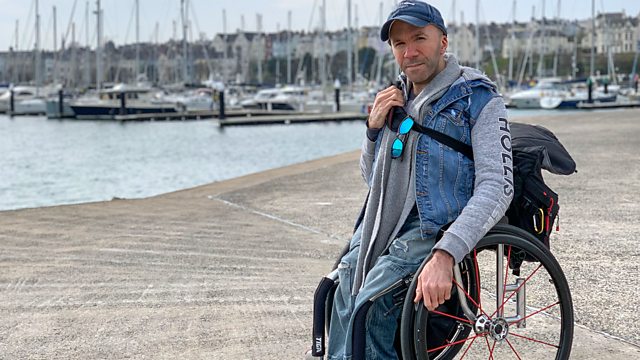
The Disability Paradox
38-year-old film-maker Chris Lynch has been in a wheelchair from the age of six. On this very personal journey, he explores whether it’s possible to be truly happy if you're disabled.
This new film explores fundamental questions about what makes us happy and how we can improve the quality of our life. Non-disabled people often take a sympathetic, even pitying view of those who are disabled. Disability can be associated with failure, dependency and weakness. There is an assumption that disabled people are therefore unhappy, miserable and even depressed. Scientific research, however, suggests that this couldn’t be further from the truth - disabled people consistently report a good or excellent quality of life, despite the perception of non-disabled people that their lives must be difficult and unhappy. It’s called the 'disability paradox'.
38-year-old film-maker Chris Lynch has osteogenesis imperfecta and has used a wheelchair since the age of ten. In this film, he interrogates this research, reflecting on his own experiences and examining if the disability paradox applies to him. On this very personal journey, he meets others living with various impairments to learn more about their experiences - are they as happy as the research suggests? Can you truly be happy if you are disabled?
Chris ultimately wants to look at quality of life and explores how this relates to body image, health and social norms. He meets Professors Havi Carel and Paul Dolan, who explain some of the scientific research about what make us happy and provide some insights into how each of us could improve our own happiness.
Last on
More episodes
Clips
-
![]()
Chris meets Samantha
Duration: 02:47
-
![]()
'Rehab couldn't catch-up with the amount of fractures'
Duration: 02:15
Credits
| Role | Contributor |
|---|---|
| Producer | Eamonn Devlin |
| Director | Eamonn Devlin |
| Director | Gerard Stratton |
Broadcasts
- Mon 9 Nov 2020 22:45Βι¶ΉΤΌΕΔ One Northern Ireland HD & Northern Ireland only
- Tue 10 Nov 2020 23:30Βι¶ΉΤΌΕΔ Two Northern Ireland HD & Northern Ireland only
- Wed 18 Nov 2020 21:00
- Thu 19 Nov 2020 02:10


